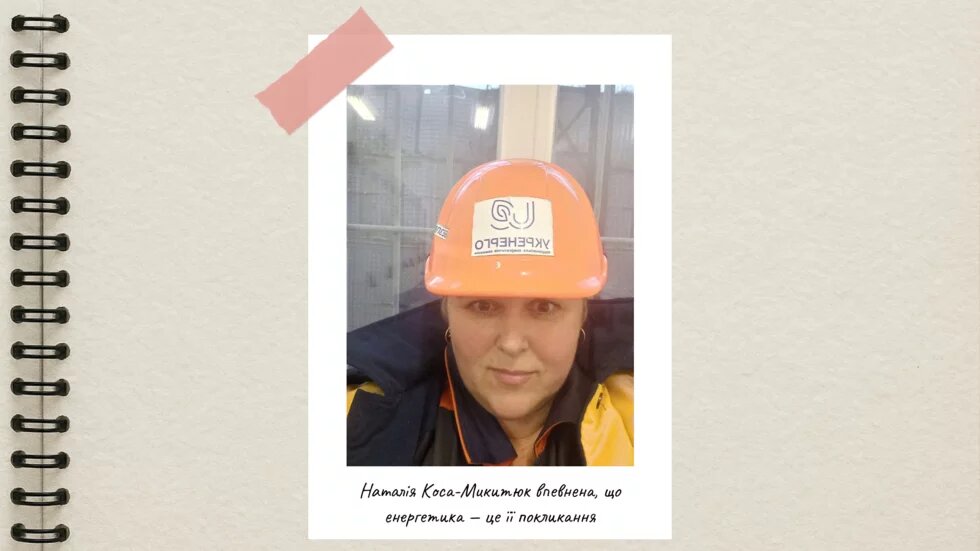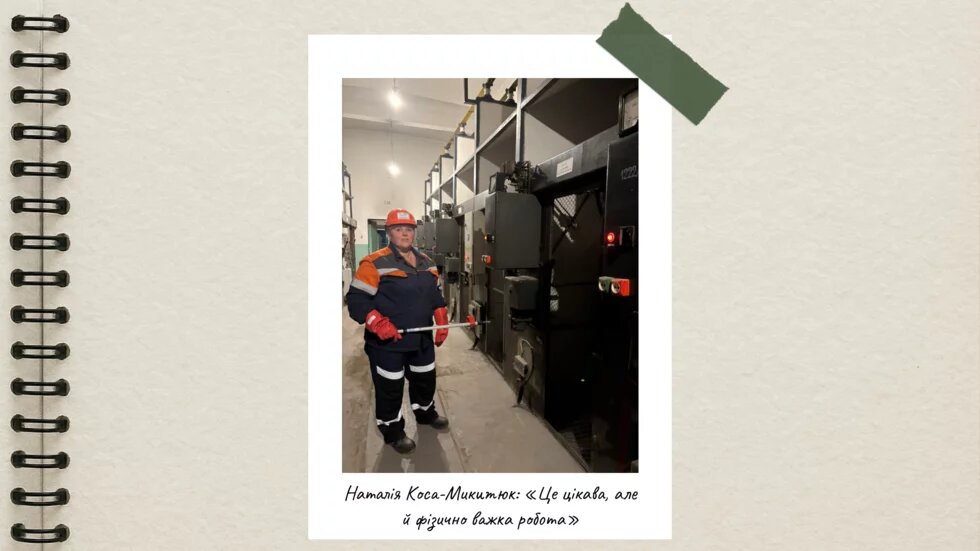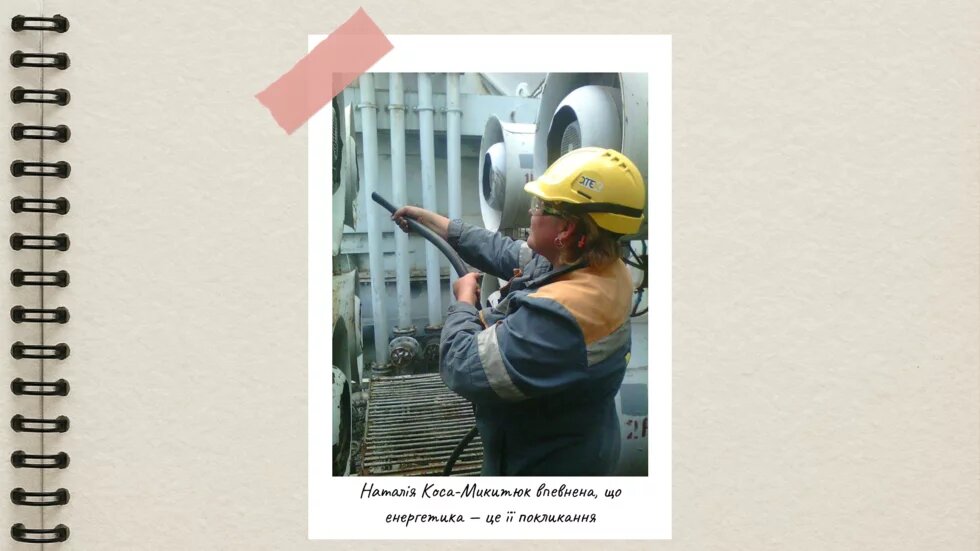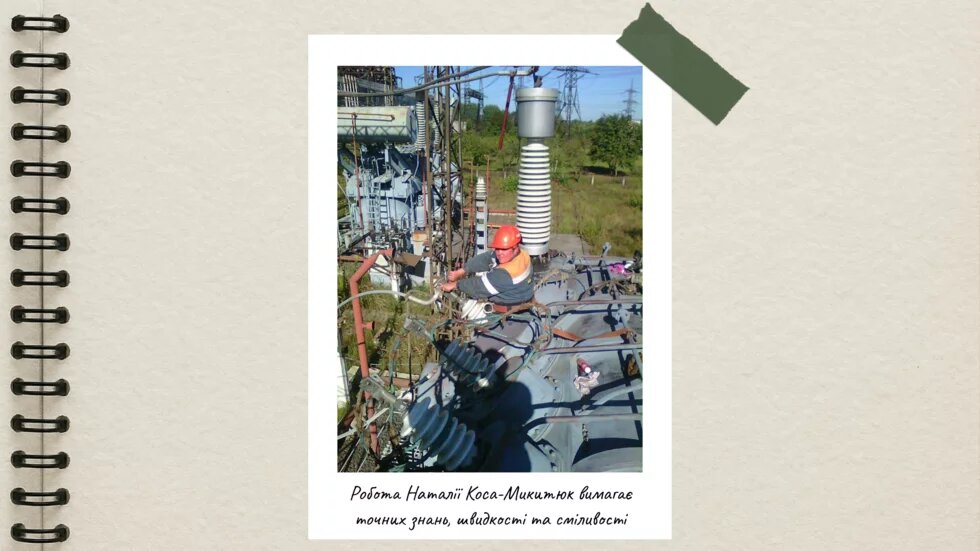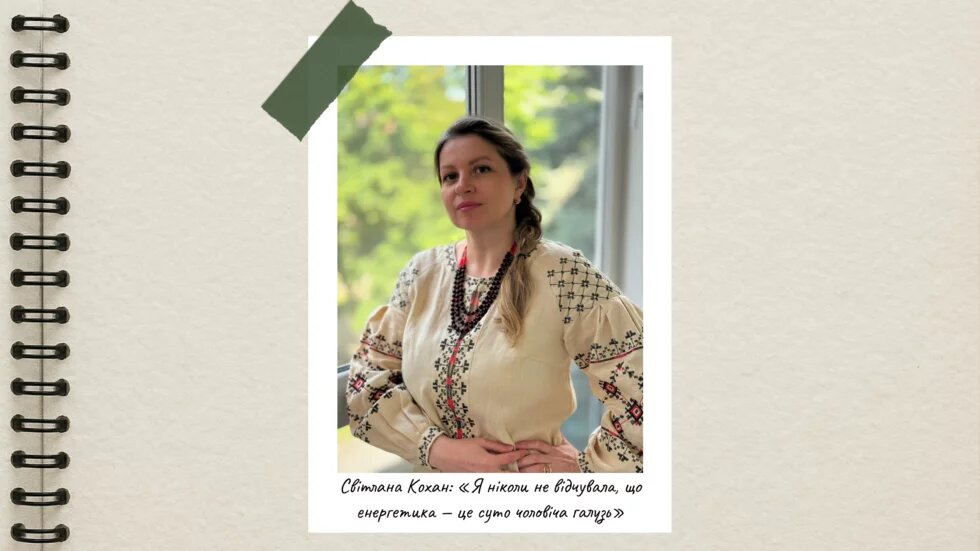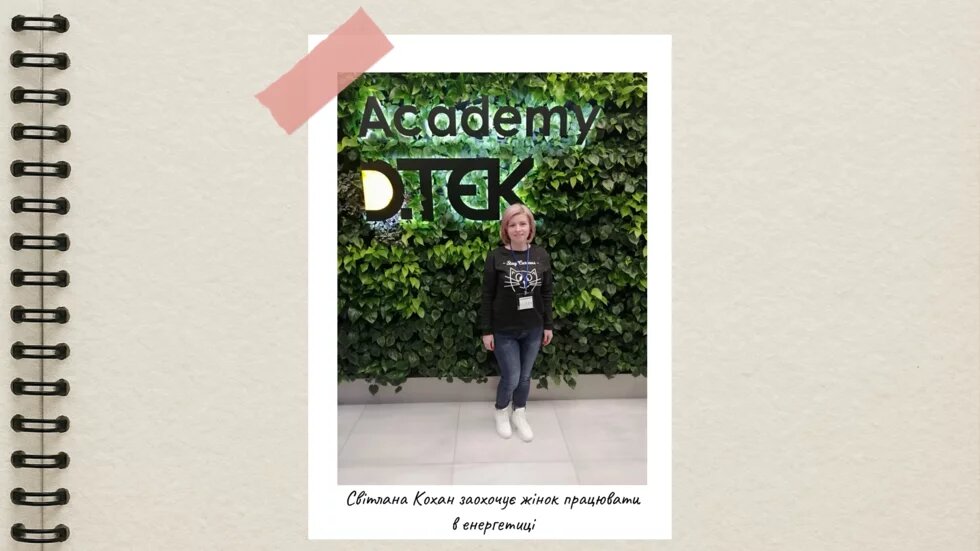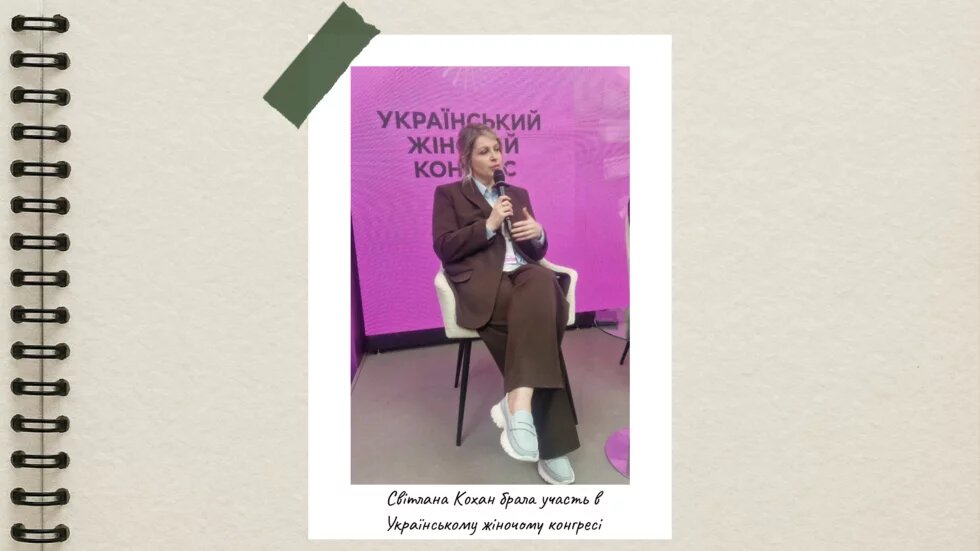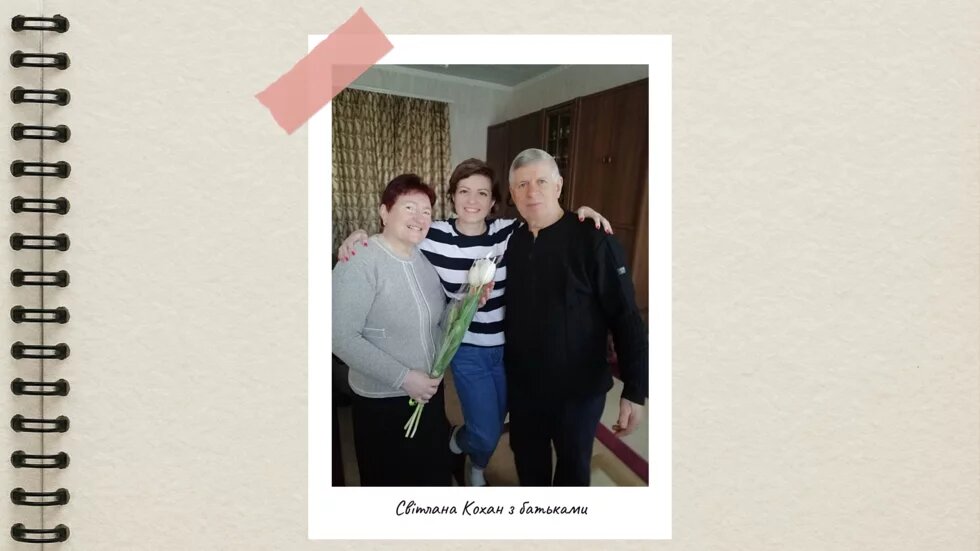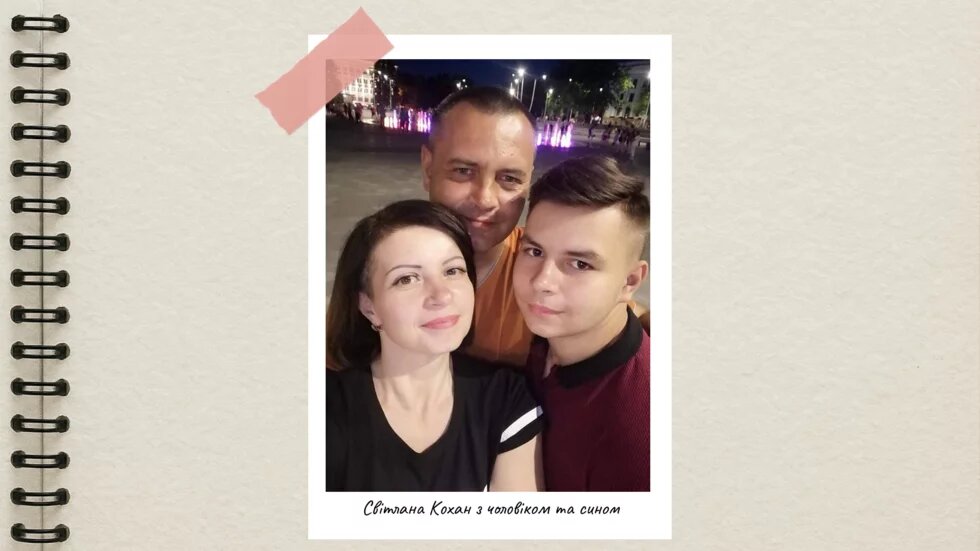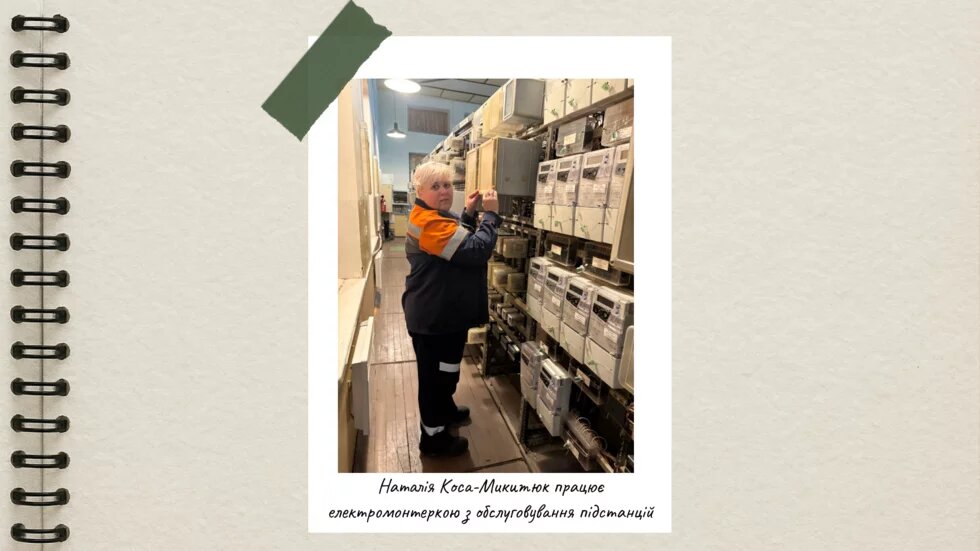
Nataliia Kosa-Mykytiuk from Lviv and Svitlana Kokhan from Donetsk region are winners of the Women of Ukrainian Energy competition. They work in challenging and highly responsible conditions, take on risks, and prove that the strength of the energy sector lies in professionalism, resilience, and humanity.
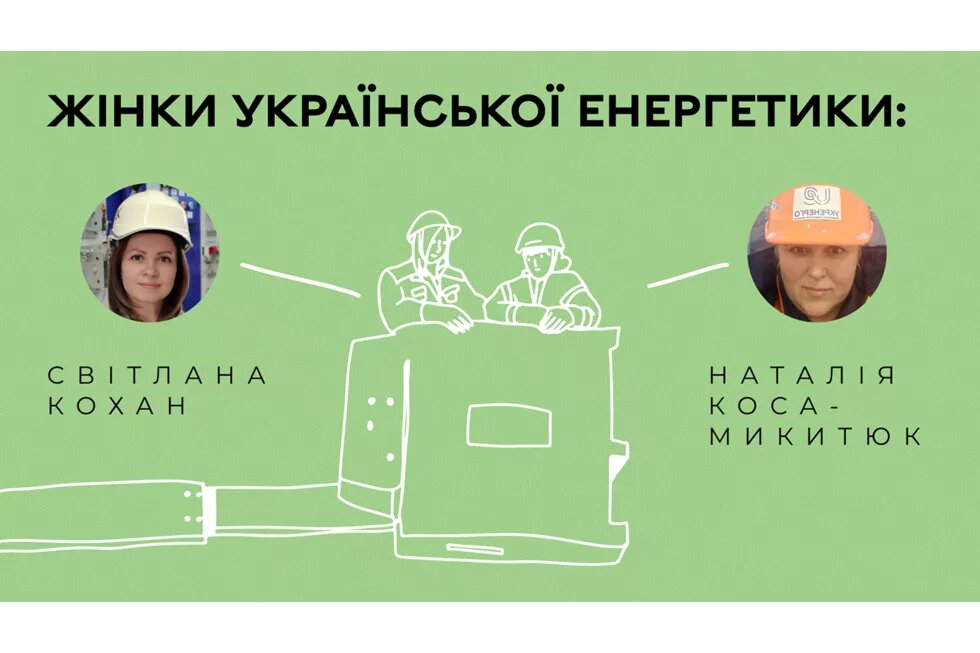
Since 2019, the civic organisation Women’s Energy Club of Ukraine (WECU), supported by the Heinrich Böll Foundation, Kyiv Office – Ukraine, has held the Women in Ukrainian Energy competition. The participants and winners are brave and motivated women who are developing the energy sector by introducing innovative solutions and creative approaches.
The heroines of this article are two winners of the contest, Nataliia Kosa-Mykytiuk and Svitlana Kokhan. Each of them paved their own difficult path to success, and both prove that there are no exclusively male or female professions in the world. We talked to Nataliia and Svitlana about stereotypes; working in the energy sector, especially during the full-scale war; their motivations; and their plans for the future.
Nataliia Kosa-Mykytiuk began her career in the energy sector as a waste oil regenerator specialist with a team of electrical technicians, and later became a switchgear electrician at Ladyzhynska Thermal Power Plant (TPP), where she was the only woman on the team. Subsequently, she changed jobs and worked as an electric machine repair technician (replacing bearings and rewinding stators in electric motors) at DTEK, where she was again the only woman. She currently works as a substation maintenance electrician at Ukrenergo in Lviv.
You have a long and intense career path. Can you say that your profession is your vocation? And have you had a moment in your life when you clearly realised you were following the right way?
I remember the times of old washing machines: my mother and I did the washing outside because the device would always electrocute us. So, my father and I constantly repaired it. We were three daughters in the family, and our dad taught us to repair. He used to say, “It’s good to know and understand things.” Since then, I have known that this was truly mine.
But still, how did you come to your profession?
It was interesting to me — and that was the key. In 2004, I found myself alone with my children after getting divorced and had to repair everything on my own. Not everyone had Internet access, but there was a library with some useful books. So, I slowly started to learn the electrical circuit. And then, there was a vacant position at the Ladyzhynska TPP.
I took the position of a waste oil regenerator specialist with a team of electrical technicians. It was very interesting. Then I earned my electrician’s qualification and graduated from college with honours. By the way, my first degree is in agricultural accounting.
Later, after earning the electrician’s qualification, I was transferred to a position as a switchgear and transformer repair techinician. I worked with males as an equal. I had great teachers. All teams were exclusively male, and I was the only woman there.
Not every person would choose such a complicated and responsible profession.
I simply love it all so much. And I pass it on to my kids. I have three: a son and two daughters. I show them how to repair devices, for it will all come in handy in life. And I also help my neighbours with repair. If I don’t know something, I master it fast. I was transferred to Lviv to work as an electric machine repair technician. That’s how I learned in two years to wind new electrical wire onto machine parts to restore them after damage. I work on equal terms with men, and they often ask me for advice, such as which electrical machines are best to install or other things.
Currently, you work as an substation maintenance electrician. Please explain what exactly you do.
When I worked as an repair technician, the work was done with the power off. But as a switching electrician, you work under voltage. This is more responsible because you must know where to go and what to do. The job is usually done outside. We go to the switches, which are turned off manually on the panel, and we analyse the circuit there. Disassembling the circuit involves using a large key, moving all heavy disconnectors, and turning them off. So, it is hard physical work, too. You must also prepare the work area, fence it off, let people in, and explain everything to them. We have something to do every day.
Are your needs as a woman taken into account at your workplace?
Well, it is difficult to get women’s workwear, because not so many women do this kind of work. For example, I have to tailer men’s oversized trousers to fit. As for all other things, such as helmets, gloves, showers, and soap — we have everything we need. The only issue is women’s workwear.
Did you have any concerns when you first started working as an electrical technician?
No, no concerns. That’s because I worked with men at the Ladyzhynska TPP in the past. They taught me a lot, for instance, to disassemble engines and insert bearings. This was very helpful in my later work. Besides, I am a little strict and very demanding with my male colleagues. I take my own safety and my colleagues’ safety very seriously. For example, when contractors arrive at the site, I have to provide them with access in accordance with all safety rules, which means preparing the workplace correctly.
What is most difficult in your job, to your mind?
I love my job so much that there is nothing difficult for me. That is why I also tell my children that they should choose a job they like. Otherwise, if you don’t want to go to work, the world won’t be a pleasant place for you. I go to work like I go home, although the job is very responsible and demanding. On the other hand, I have a great team. I like working with men: we can laugh together and discuss some work issues, since we have so much in common. By the way, I also restore furniture. I own a garage and like spending time there.
Have you noticed any stereotypical attitude towards yourself in a male team?
Sometimes, guys say, “Hey, Nata, let us help you bring the portable grounding.” I don’t allow that, I do and carry everything on my own. That’s what I taught them: there is no division into male and female work.
See, I was taught similarly at the Ladyzhynska TPP: if we repair all the fan engines, I take one and carry it myself. I don’t allow anyone to assist me, we all work equally. I’m not afraid of hard physical work. Maybe I should sometimes show that I am a woman, but on the other hand, we all receive the same salary. And if I can, I work to the very end.
I know there was a massive attack on an energy site during your shift in Lviv. How did you and your colleagues cope with that?
The shift had just started, and an air raid alarm was announced. There were two of us, the dispatcher and me. We stayed in the shelter. It was midday. The first transformer was hit, then another one. We were a bit scared, but we couldn’t lose our heads. The lights went off, and I immediately thought about children.
How difficult was it to deal with the damage?
It wasn’t easy. When we got outside, we saw that the substation was completely shut off. But the guys arrived right away, even those from the night shift. It was crucial to save the air switches, because without air, we would not be able to start the system. We had to quickly twist everything around, disassemble the circuit, and make sure no one came into contact with the voltage. We turned everything off and let the firefighters in. There were a lot of people. We turned everything by until midnight, giving electricity to hospitals first.
You have a dangerous and responsible job. What motivates you to move forward and not give up?
No idea, it has simply become my way of life. I like it. Of course, I would like to try something new. We have new switches, I would like to see how they work, explore another circuit, new equipment. My husband also works as a transformer repairman, the job brought us together. Even at home, we always talk about electrical installation (laughing).
Do you have any work rituals or superstitions?
I don’t have rituals, but there is an superstition — you cannot start the shift with the words, “Oh my, what will happen? What will this night be like? Something might shut down.” God forbid anyone says that out loud.
What would you recommend to women willing to work in the energy sector?
Think positive! You should definitely try it, it is very interesting. Women should not be afraid to work on male teams. It is crucial to present yourself as a colleague and show that you must be respected. And you yourself must demonstrate a serious attitude toward work.
Generally, I see more and more girls getting interested in technical professions, which is a positive development. They listen to different lectures on the sector. However, it has become more difficult with the war. For example, in the past, children went on tours at the stations and were told everything about the related professions. It would be great if such programmes continued. Even my daughter says, “Mom, show me where you work,” but this is impossible now.
You mentioned that even at home, you and your husband talk about work, but do you have any hobbies?
My hobby is going to the garage and doing what I love. I have my tools and different devices there. I solder, I work with electrical circuits a lot. That’s the most interesting thing for me! Coming from work, I don’t go to bed but instead I tell my family, “I’m going to the garage: I’ve got to restore a table, a chair, repair a lamp, a bicycle, the washing machine, etc.” (smiling)
Svitlana Kokhan is the head of the operational-dispatch centre for the grid distribution at DTEK Donetsk Grids JSC. She continues working as an energy sector worker in Donetsk Oblast even as the war brings constant danger to her and her family’s lives.
Please tell us how you found yourself in the energy sector. Did anyone influence your choice of profession?
It was my father who influenced my professional choice; he worked in the energy sector for more than 40 years. I used to hear a lot of different and interesting stories from him. My two brothers also work in the energy sector. However, I didn’t choose this profession immediately. It was my father who guided me. I remember him saying that, without trying, I won’t know if it’s for me. He said that this sphere equally suits men and women — one should just try.
Being constantly on equal terms with my brothers, I never felt like there was something exclusively male or female. Moreover, I was always interested in natural sciences, although I did not pay attention to that at first.
Please tell us about your path to the top position. What challenges did you face?
In 2007, I started my career as a power usage inspector. And only later, after watching the work of maintenance electricians, I felt like I wanted to be directly involved in restoring power to people, so I transferred to the emergency response team as an electrician. I had a technical education, and after consulting with my family, I started working as a dispatcher when the opportunity appeared. I easily completed the necessary special training in labour safety at the company and got the job. Later, having gained enough experience, I became a senior dispatcher.
I would say that the only challenge in our work is about understanding the processes, as the work is rather difficult, responsible, and dangerous.
You have almost exclusively males working under your command. How do they react to having a female leader?
Considering that I started from the electrical technician position, they realise it is pointless to tell me I didn’t see something or don’t know how to do something. I have experience, and they even often ask for advice.
What personal qualities help you in this difficult and responsible job?
Perseverance, first of all. You have to bring everything to an end, and without perseverance, it won’t work. And also courage, responsibility, and determination.
As a leader, you see the “career ladder” from above. What unspoken rules or barriers exist in your sphere?
As a leader who has gone a long way in the energy sector, I see the “career ladder” not as a peak where you stand alone but as a path that requires you to constantly improve and help others to climb together.
There are numerous myths about the energy sector, such as the idea that it is a male-dominated field or that there are limitations for women. But actually, the energy sector is a sphere where it is not gender but professionalism, understanding of processes, and the desire to work that are decisive.
It is crucial to be motivated, understand your role in the system, and believe in your own strengths. Everything else is a matter of time, experience, and persistence.
I know you often have to look for non-standard solutions. Tell us about that.
That is true, especially now during the full-scale war in our country. As for the operative part, when consumers need to be supplied from one source to another, it’s necessary to think carefully in order to offer something truly effective. These must be fast solutions that require swift actions to restore the lights in people’s homes as quickly as possible.
There was an episode in 2022 that required fast organisational decisions, when forced evacuation of women and children was announced in Donetsk Oblast. This still happens in the areas close to active combat actions.
So, in May 2022, the evacuation was announced in the whole oblast. In Dobropillia, there was a dispatcher’s unit consisting of women only. After they left for other cities, a mobile dispatch unit was needed. We had to set up each dispatcher’s number on a recording device because all conversations had to be recorded. It was a very serious job.
In autumn, the dispatcher’s unit was restored to regular operation in Dobropillia. Now, the situation in the city has once again become very tense due to active fighting, and the dispatch unit has been relocated from Donetsk Oblast to Dnipro to ensure safety and uninterrupted operation.
How has your understanding of leadership changed since the beginning of the full-scale war?
The responsibility has increased due to the need to care more about employees as humans, since everyone has a family, concerns, and needs. I started communicating more with them and asking about their relatives, feeling that my responsibility extends beyond mere work processes.
The dispatchers share this feeling, as they are responsible not only for themselves but also for the teams they manage. And that is about both emergency response teams and the repair staff working in the units. Leadership today is not just management but the ability to support, unite, and protect your team under constant threat.
Where do you get so much power, energy, and inspiration?
My family is my inspiration. I have a husband who always supports me, my adult son who is almost 22, my mother, my father, two brothers, and Yasha, a dachshund dog who is almost 10. I also used to have a hobby of making different crafts, such as baskets from newspaper tubes. And I love reading different books.
Let’s talk about gender balance. I know that you introduced some initiatives to engage women in the energy sector. Tell us about them.
We introduced training to help women feel confident while entering this sphere. We actively use various training and development formats across the company to support women and help them overcome fears or doubts about working in the energy sector. In my team, two female dispatchers became internal trainers. When the need for teaching emerged, I immediately asked them to join, but they first refused because they had never taught before. However, I persuaded them, and for two years now they have been teaching and mentoring others.
Why are there fewer women than men in the energy sector, in your opinion? Maybe there is a lack of information campaigns or other measures to encourage women to enter technical fields?
In my opinion, the reason fewer women work in the energy sector is the still-existing societal stereotypes. It is considered a “male” sector, and many girls simply do not see themselves in it due to the lack of examples and support.
I attended the Ukrainian Women’s Congress organised by the Women’s Energy Club of Ukraine, where women from different fields told their stories, and everyone was so interesting and had such a great experience. It was an exciting event. And during informal conversations, I had a chance to express my opinion that girls take leadership from a very young age: from kindergarten to college. But after getting married, we somehow start thinking that we must follow the husband. I believe that women should not be afraid to build careers on their own, even in spheres traditionally considered male ones, such as the energy sector. We must break these stereotypes, support each other, and show an example to future generations.
What does showing courage mean to you personally?
At a certain point, it was about learning to drive. Although I had a driver’s license, I hesitated, and at that time, driving on my own meant courage and bravery to me, especially since I had been learning in December. That was in 2015, and then I didn’t drive for a whole year because, for some reason, I lacked the courage.
And then, I decided: it’s now or never. So, the next winter, I started driving again. It was a challenge for me. And that’s how it works with every person — once you start doing something, it scares you. But you must overcome the fear, not take up something without thoroughly thinking about it, but also avoid delaying and overthinking. If you don’t start, you won’t get anywhere.
What do you dream of after victory?
I want to gather my whole family in one place, including my parents, my daughters-in-law, really everyone. I also dream that my son successfully completes his studies, finds himself in adult life, and realises himself professionally. I believe in his success and want him to choose a path that would bring him joy, stability, and growth. As for myself, I always dreamed of flying in a hot air balloon. First, there was no time, then no courage, but I always longed for that. When we have an open sky and everything is well again, I would so much like to realise this dream!
Both our heroines are winners of the Women in Ukrainian Energy competition. We asked Nataliia and Svitlana what this victory means to them and how important such events are for women from the energy sector.
Nataliia Kosa-Mykytiuk: First, I was happy to receive this award. Because women are, unfortunately, not really recognised at work. No matter how hard I worked, it was always men who were honoured at work. Women should be prepared for the fact that in male-dominated teams, men are more likely to be honoured than women. They can’t acknowledge that a woman can be better at something, even though we are physically the same as them. I know that myself, I work as an equal. Second, such competitions show that women are truly valuable. When we were awarded, I even cried. I just realised that, for the first time in my life, I received an award for my work. It was very nice.
Svitlana Kokhan: There is a saying that the main thing is not winning but participating. It is important not only for me but also for my colleagues, like proving that they have a female leader. And it was noticed and even awarded. It’s not only my victory but also the victory of the whole team; without them, I would not have had the opportunity to show my leadership.
Generally, such competitions and events are essential for female leadership in technical spheres. They are necessary for other women to see that there are indeed women working in this field, that the energy sector is not exclusively male-dominated, that there is nothing to be afraid of, that we must become leaders, take on responsibility, and that the energy sector needs us, women, no less than men — and that we are capable of overcoming these challenges, uniting teams, and making difficult decisions. We are capable of changing the future!
NGO Women’s Energy Club of Ukraine (WECU) is an independent professional association for the female employees of Ukraine’s energy sector, based on voluntary participation.
The club unites over 200 women, including energy experts, employees of members’ organisations and Ukrainian branches of international organisations reforming Ukraine’s energy sector, businesses, NGOs, female Members of Parliament (MPs), and any women interested in fair and sustainable development of the Ukrainian energy sector.
WECU initiated the annual Women in Ukrainian Energy competition in 2019.
The goal of the contest is to recognise women’s achievements in the energy sector, bolster their role in the field, and encourage them towards further achievements, both in the energy sector and related fields. The award is meant to encourage participants to promote gender equality in the energy sector, in their workplace, professional training, research, and field-specific journalism.
The nominations for this competition are determined annually. Over the past years, they included Business of the Year, Female Executive of the Year, Female Employee of the Year, Female Journalist of the Year, Female Educator of the Year, Female Decarbonisation Leader, Female Politician of the Year, Female Volunteer of the Year, and Female Lawyer of the Year.
The contest is held under the auspices of the Heinrich Böll Foundation, Kyiv Office - Ukraine.
The opinions expressed by the heroines in this article belong to them and not necessarily reflect or represent the opinions and position of the Heinrich Böll Foundation and the Women’s Energy Club of Ukraine.
